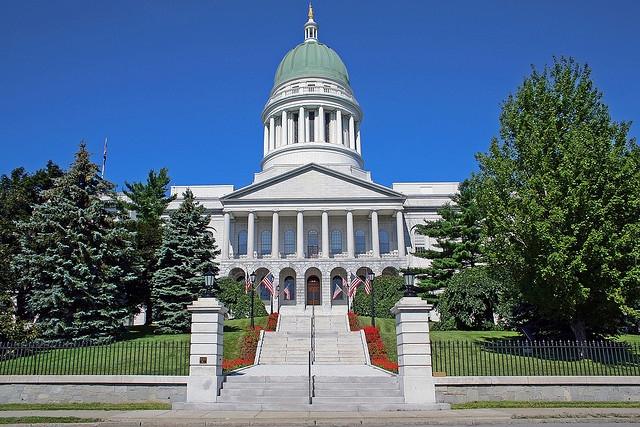
Governor Paul LePage (R-Maine) recently announced his plan to place on the ballot a referendum in 2016 to abolish the income tax. His proposed amendment to the Maine Constitution would eliminate the income tax for good, preventing Augusta politicians from re-implementing the income tax in the future via legislative vote.
LePage announced that he would likely set 2020 as the year the income tax repeal would go into effect. If the referendum were successful, Maine would become the tenth state to not tax income, which would help fulfill one of the promises LePage made regarding his two terms in office.
Gov. Le Page recently pitched his budget and the elimination of the income tax at a town hall forum:
According to his new budget, he not only wants to abolish the entire state income tax – which is comprised of two brackets – but also reduce the top tax rate from 7.95 % to 5.75%. His budget also reduces top corporate tax rate from 8.93% to 6.75% while broadening and raising the state sales tax from 5.5% to 6.5%.
The Tax Foundation concluded in their State Business Climate Index, that if all of Le Page’s budget proposals were implemented, Maine would move from being ranked at 33rd to 23rd in the index.
The budget would result in more than $250 million in net tax cuts, independent of the plan to eliminate the income tax.
In 2014, Forbes ranked Maine as second worst state to do business in, something that clearly concerns Gov. LePage. The governor has worked to make the case since his first election 5 years ago that the tax code must be simpler, flatter, and encourage more economic growth. His most recent budget and his plan to place the elimination of the income tax on the ballot further demonstrates his commitment to those principles.

